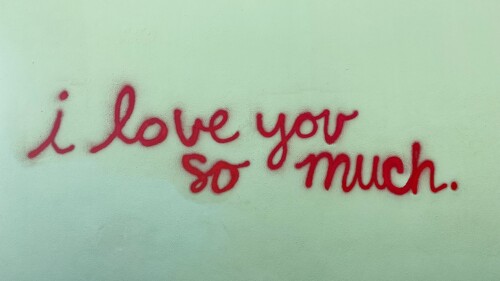Two words: Free. Water.
It’s an almost utopian concept. Water? For free?
Josh Cliffords doesn’t see why it has to be. The founder of FreeWater — the Austin-based company that does exactly what it sounds like — thinks water should be free.
In fact, he has much bigger dreams than that.
What is FreeWater?
Josh’s journey to FreeWater began in 2015, when he started a nonprofit with his wife called Save the Refugees. As the organization was supporting refugees along the Balkans, he began thinking about access to water.
“A quarter of them expressed that they had left their country because they didn’t have water or food,” Josh said. “That really opened my eyes to the global water crisis and global famine issues.”
At first, Josh tried to start up FreeWater in Western Europe, and then in Silicon Valley, before finding a place for the business in Austin.
“Someone said, ‘Austin’s got this slogan, Keep Austin Weird. A free beverage company that donates to charity … that’s pretty weird. You should move to Austin,’” Josh said.
So, a few years after the idea began, he planted roots in the Capital City and got to work.
FreeWater is able to give away its products free of charge thanks to advertising that wraps the company’s aluminum bottles and paper cartons. The average consumer carries the bottle with them for roughly 45 minutes while drinking it — much longer than the average billboard or commercial viewing — and Josh said advertisers seem to be attracted to the real estate.
The business first started distributing prototypes during the pandemic, standing on the Pfluger Pedestrian Bridge for hours at a time. People started sharing it on social media, Josh said, “and then the whole thing just really started to blow up.”
In 2022, the company went out of pocket on 60,000 waters. This year, they’re turning a profit.
This also means FreeWater has been able to start contributions to water charities. The company donates 10 cents to water-oriented charities per bottle or carton distributed. So far, FreeWater has donated ~$25,000 to Well Aware and Charity Water to finance projects in Kenya and India.
Josh calls it getting a product 110% off — “It’s free, and it donates 10 cents to charity.”
The free future
Free water is just the tip of the iceberg of Josh’s grand vision.
Next, it’s free vending machines. Then, free supermarkets. Then, free home delivery.
Okay, the supermarkets and home delivery might be a ways out, but the company is actively work-shopping its first vending machine now.
The vending machine, which will be launched in Austin when the time comes, will work via an app, allowing the user to watch advertisements in order to earn a free product.
Once the prototype finishes user testing — or as Josh puts it, “allow everyone to come and ethically break it so we can fix it a bunch of times” — the machines will be scaled across Downtown Austin. If just one of these machines were emptied once per day, he said, it would earn enough to donate $9,000 annually to charity.
Josh hopes later versions of the machine will be able to print a targeted, individualized advertisement on products in real-time, generating even more profit and scalability. The business also hopes to develop and launch free soda products in the near future.
If it sounds like FreeWater has a lot of irons in the fire, it’s because it does. But it’s important, Josh said. It’s water.
“Most people that receive a FreeWater, the first thing they say is that things like water, food, and medicine should be free anyway,” he said. “That’s why the movement is growing so rapidly. People believe what we believe: that these things should be free, eco-friendly, charitable, and profitable.”












